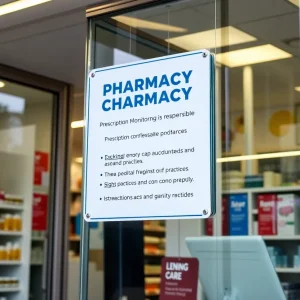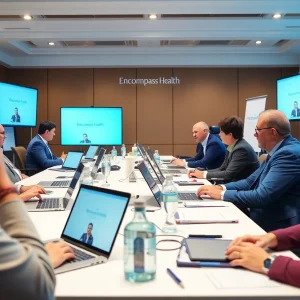News Summary
In the era of social media, wellness influencers share health advice that often lacks scientific evidence. This article explores the potential risks associated with following these influencers, the importance of skepticism, and the need for personalized nutrition. With growing concerns about misinformation, the healthcare community faces the challenge of promoting evidence-based practices while counteracting misleading claims prevalent in the wellness industry.
Navigating the Risks of Wellness Influencers: Social Media’s Role in Health Misinformation
In today’s digital landscape, social media is bursting with wellness content. You might find your feeds overflowing with influencers enthusiastically endorsing their favorite treatments and products for everything from weight loss to fatigue management and overall health enhancement. But before you dive headfirst into the latest fad recommended by your favorite influencer, it’s crucial to take a moment and assess the situation.
The Wellness Boom and Lack of Evidence
Many recommendations coming from wellness influencers fall in line with contemporary health fads that often lack necessary scientific backing. Medical experts have voiced concerns about this trend, highlighting the importance of understanding that not everything promoted online is supported by hard evidence. For instance, it seems there’s a rising trend of influencers advocating for the avoidance of certain food items like seed oils, while others champion diets such as the carnivore diet, which consists almost entirely of meat. How legit are these suggestions? That’s what we’re here to explore.
Natural Alternatives and Misleading Claims
Some products, like berberine, are marketed as natural alternatives to traditional medications, and trends like IV vitamin therapy are getting hyped up as cures for everything from hangovers to fatigue. While alternative health practices had roots long before the internet, they are gaining massive acceptance and popularity online. This circumstance is prompting calls for stricter regulations as misleading claims could harm users who take them at face value.
Influencers with Controversial Backgrounds
People are often shocked to discover that dubious figures like Robert F. Kennedy Jr. and Dr. Mehmet Oz have gained a substantial following on social media, even after they’ve been previously accused of spreading misinformation. A recent Netflix documentary brought attention to Belle Gibson, a wellness influencer who misled her followers into believing she cured her brain cancer through alternative methods — she ultimately faced a fine for her fraudulent claims. This case raises red flags about the kinds of endorsements we see in our feeds.
Be Skeptical of Influencer Health Advice
Health experts urge a healthy dose of skepticism when it comes to influencer-led product recommendations. Many are financially invested in the products they are promoting through affiliate links and sponsorships. Research reveals that a significant chunk of medical and health-related posts on platforms like Instagram and TikTok come from users who have something to gain from the products they are touting. This begs the question: should we trust what they say?
Checking Qualifications and Claims
When it comes to health advice, verifying influencers’ credentials is crucial. While some organizations maintain databases that can help check the qualifications of health professionals, even certified influencers may have undisclosed sponsorship conflicts that could bias their endorsements. The Federal Trade Commission has attempted to tackle this concern by implementing guidelines requiring influencers to disclose paid promotions. However, compliance varies, especially among registered dietitians.
Evaluating Credibility and Research
How can you determine the credibility of health claims online? Start by checking references against reputable sources and examining whether the studies cited are published in peer-reviewed journals. It’s all too easy to be swayed by flashy claims, but ensuring they are grounded in factual information is essential.
Social Media and Health Misinformation
Social media is becoming a go-to resource for health advice, even as misrepresentation runs rampant, particularly among uncredentialed wellness influencers. Patients often seek dietary guidance online, leading them down a rabbit hole of diet-related misinformation. Renowned endocrinologists express concern that although food can influence hormone levels, many bold claims by influencers about diet’s impact on hormone production are overstated and lack rigorous evidence.
Embrace Personalized Nutrition
Instead of jumping on the latest diet trend, healthcare professionals encourage individuals to adopt personalized nutritional plans. Many popular diet fads can lead to restrictive eating patterns that may result in nutrient deficiencies. This paints a concerning picture, especially when it comes to extreme diets that could encourage unhealthy habits.
The Healthcare Community’s Role
As the field of wellness influencers continues to flourish online, healthcare providers are left with the critical duty of counteracting misinformation while promoting evidence-based health practices. It’s a challenging world out there, but with a bit of skepticism, a commitment to research, and a focus on genuine expertise, consumers can better navigate the often murky waters of wellness content and make informed choices about their health.
Deeper Dive: News & Info About This Topic
HERE Resources
Yoga and Meditation Market on the Rise: A New Wave of Wellness
Innovative Social Media Marketing Strategies Propel Fitness and Nutrition Brands to New Heights
Fitness and Nutrition Brands Embrace New Social Media Strategies
Social Selling Revolutionizes Ecommerce: A Sneak Peek into the Future
TikTok Unveils Ramadan Marketing Guide for Brands
Los Angeles Influencer Marketing Landscape: A Vibrant Community of Change-Makers
FTC Updates Guidelines on Influencer Marketing to Enhance Transparency and Compliance
AI is Revolutionizing Marketing Strategies for 2025
Wellness Industry Makes Big Waves: A $6.3 Trillion Transformation
Coca-Cola Launches Simply Pop: A New Prebiotic Soda
Additional Resources
- My Journal Courier: Finding Health Advice on Social Media
- Wikipedia: Health Influencer
- Endocrinology Advisor: Hormone Diets
- Google Search: Health Misinformation on Social Media
- Psychology Today: The Perils of Wellness Content on Social Media
- Google Scholar: Wellness Content on Social Media
- E! Online: Meghan Trainor and Weight Loss Medication
- Encyclopedia Britannica: Social Media
- Influencer Marketing Hub: Weight Loss Marketing Strategies
- Google News: Weight Loss Influencers


























